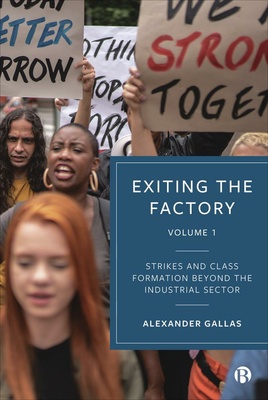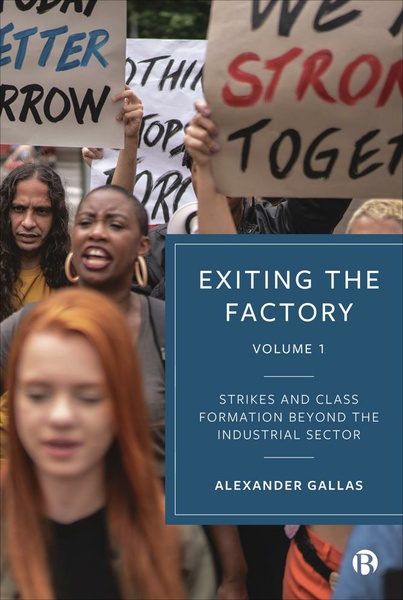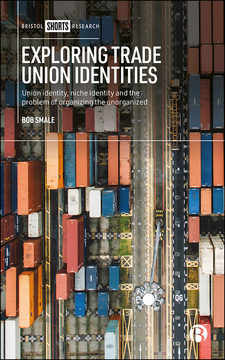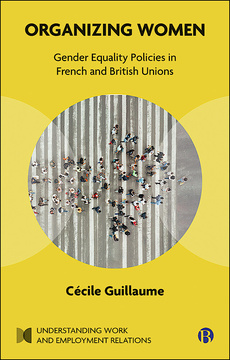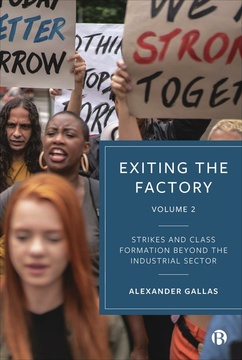Exiting the Factory (Volume 1)
Strikes and Class Formation beyond the Industrial Sector
By Alexander Gallas
Published
Jul 1, 2024Page count
208 pagesISBN
978-1529212112Dimensions
234 x 156 mmImprint
Bristol University PressPublished
Jul 1, 2024Page count
208 pagesISBN
978-1529212136Imprint
Bristol University PressPublished
Jul 1, 2024Page count
208 pagesISBN
978-1529212136Imprint
Bristol University PressIn this important book, Gallas asks what strikes in non-industrial sectors mean for class formation, a critical question which has largely been unaddressed by the current literature on global labour unrest.
A mapping of strikes around the world and case studies from Germany, Britain and Spain cast new light on class relations, struggles around waged and unwaged work and labour movements in contemporary capitalism to bring class theory back to labour studies.
This is a valuable resource for academics and students of employment relations, sociology and politics.
“Conceptually innovative, empirically rich, these two volumes provide a comprehensive assessment of class struggles at the beginning of the 21st century. Importantly, Gallas demonstrates a shift towards class formation and strikes in non-industrial sectors including a specific focus on Britain, Germany and Spain. A must-read for everyone interested in Global Labour Studies.” Andreas Bieler, University of Nottingham
Alexander Gallas teaches in the Department of Political Science at the University of Kassel in Germany.
Part 1: Global Labour Studies: Conducting Research on the Side of Workers
1. Being on the Side of Workers: On the Normative Foundations of Global Labour Studies
2. From Organic Intellectuals to Academic Workers: How Knowledge Handlers Connect with Organised Labour
3. The Challenge of Strategic Research: A Critical Engagement with the Power Resources Approach
Part 2: Class Theory: Relations of Production, Antagonism and Social Domination
4. The Ontology of Class: Moving beyond Inequality and Identity
5. The Constitution of Class in Capitalism: From the Relations of Production to Collective Agency
6. Making, Unmaking, Remaking: Working Class Forces in Formation
7. Between Representation and Intermediation: The Double Character of Workers’ Mass Organizations







